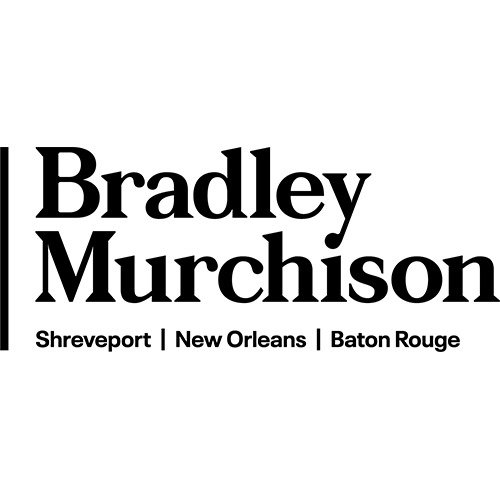Best Structured Finance Lawyers in New Orleans
Share your needs with us, get contacted by law firms.
Free. Takes 2 min.
List of the best lawyers in New Orleans, United States
About Structured Finance Law in New Orleans, United States
Structured finance refers to complex financial instruments and transactions designed to shift risk, secure funding, and facilitate capital flow for businesses and individuals. In New Orleans, structured finance often involves the pooling of financial assets, creation of securities backed by these assets, and the implementation of strategies to tailor risk and returns. Legal frameworks in the region oversee the structuring, documentation, regulatory compliance, and tax considerations unique to these arrangements. Common applications involve mortgage-backed securities, asset-backed securities, collateralized loan obligations, and more, typically orchestrated by business entities, financial institutions, and investors seeking to manage risk and liquidity.
Why You May Need a Lawyer
Legal guidance is essential at multiple stages of structured finance transactions due to their complexity and regulatory oversight. You might require a lawyer's assistance if you are:
- Forming, structuring, or participating in asset-backed securities or complex investment vehicles
- Negotiating and drafting structured finance agreements, including securitization or collateral arrangements
- Complying with federal, state, or local regulations involving structured deals
- Addressing tax implications or seeking advice on tax-advantageous structures
- Managing risks of default, foreclosure, or bankruptcy that impact the underlying assets or securities
- Resolving disputes arising from performance, disclosure, or enforcement of structured financial arrangements
- Advising on amendments or restructuring due to market shifts, interest rate changes, or regulatory updates
Given the stakes and technical intricacies, having a lawyer ensures you uphold your obligations, mitigate risks, and safeguard your interests.
Local Laws Overview
Structured finance activities in New Orleans fall under several layers of law:
- Louisiana Civil Law System: Louisiana follows a civil law tradition, distinct from the common law used in other states, affecting contract interpretation and enforceability.
- State Statutes and Regulations: Louisiana Revised Statutes regulate secured transactions, bankruptcy filings, and the enforcement of obligations. State banking laws may also apply to financial institutions based in New Orleans.
- Federal Oversight: Many transactions trigger federal regulations, such as those promulgated by the Securities and Exchange Commission, the Office of the Comptroller of the Currency, and the Federal Reserve.
- Local Taxation and Municipal Rules: Some transactions may have local tax consequences or require compliance with city ordinances, particularly in regards to real estate-backed securities.
Due to the interplay between local and federal rules, structured finance arrangements in New Orleans demand careful review by professionals familiar with both jurisdictions.
Frequently Asked Questions
What is structured finance and how does it work?
Structured finance describes the use of legally sophisticated financial instruments or transactions to help organizations mitigate risk, raise capital, or accomplish specific investment goals. It typically involves pooling assets, transferring them to special entities, and issuing securities backed by the pooled assets or cash flows.
What types of assets can be securitized in New Orleans?
Common assets include mortgages, commercial loans, auto loans, credit card receivables, equipment leases, and even future revenue streams such as royalties or municipal taxes.
What are the main legal challenges in structured finance transactions?
Legal challenges include ensuring compliance with state and federal regulations, properly drafting contracts, addressing bankruptcy risks, managing tax impacts, and accurately disclosing information to investors.
How does Louisiana's civil law system impact structured finance contracts?
Louisiana law interprets and enforces contracts based on codified statutes rather than precedent, which may affect risk allocation, representations, warranties, and remedies in structured finance deals.
Do I need to register securities involved in structured transactions?
Depending on the nature and audience of the securities, registration may be required under federal and state law unless exemptions apply. Legal counsel is crucial in determining and documenting compliance.
What role does a Special Purpose Entity play?
A Special Purpose Entity (SPE) is a legally separate entity created to facilitate structured transactions, isolate risk, and protect the parent company from financial exposure related to the assets or obligations.
What are the tax considerations for structured finance in New Orleans?
Tax treatment varies based on the structure, asset types, and participants involved. Both federal and Louisiana state taxes must be analyzed to optimize the transaction and avoid adverse consequences.
How can I resolve disputes arising from structured finance deals?
Disputes may be resolved through negotiation, mediation, arbitration, or litigation. The choice of forum and applicable law are important considerations typically addressed in the transaction documents.
Is bankruptcy law relevant to structured finance?
Yes, bankruptcy can significantly affect the rights of parties in structured finance transactions, particularly with respect to the assets involved, prioritization of claims, and rights of investors or creditors.
Can individuals participate in structured finance, or is it limited to businesses?
While most participants are businesses or institutional investors, sophisticated individuals may engage in certain types of structured finance, though regulatory hurdles and minimum capital requirements often apply.
Additional Resources
The following organizations and resources can provide further guidance or regulatory information on structured finance in New Orleans:
- Louisiana State Bar Association - Business Law Section
- Louisiana Office of Financial Institutions
- United States Securities and Exchange Commission (regional offices)
- New Orleans Bar Association
- Federal Reserve Bank of Atlanta - New Orleans Branch
- Louisiana Department of Revenue (tax guidance)
- American Securitization Forum
Next Steps
If you are considering or are already involved in a structured finance transaction in New Orleans, it is prudent to seek specialized legal counsel. Start by gathering basic information about your financial goals, assets involved, and the structure you are pursuing. Reach out to a law firm or attorney with expertise in structured finance and knowledge of Louisiana's unique legal landscape. Arrange a consultation, discuss your needs and concerns openly, and work with your legal advisor to ensure full compliance, risk mitigation, and the successful execution of your finance strategy.
Thorough legal review and planning are essential to protect your interests in these sophisticated transactions. Acting early helps prevent costly mistakes and avoids future disputes in this highly regulated local and national environment.
Lawzana helps you find the best lawyers and law firms in New Orleans through a curated and pre-screened list of qualified legal professionals. Our platform offers rankings and detailed profiles of attorneys and law firms, allowing you to compare based on practice areas, including Structured Finance, experience, and client feedback.
Each profile includes a description of the firm's areas of practice, client reviews, team members and partners, year of establishment, spoken languages, office locations, contact information, social media presence, and any published articles or resources. Most firms on our platform speak English and are experienced in both local and international legal matters.
Get a quote from top-rated law firms in New Orleans, United States — quickly, securely, and without unnecessary hassle.
Disclaimer:
The information provided on this page is for general informational purposes only and does not constitute legal advice. While we strive to ensure the accuracy and relevance of the content, legal information may change over time, and interpretations of the law can vary. You should always consult with a qualified legal professional for advice specific to your situation.
We disclaim all liability for actions taken or not taken based on the content of this page. If you believe any information is incorrect or outdated, please contact us, and we will review and update it where appropriate.













